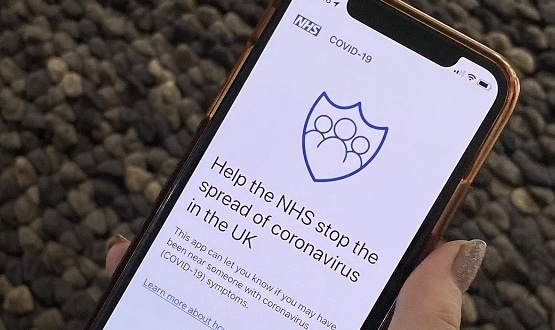As the NHS’ contact-tracing app moves closer to a national roll out, Digital Health News has rounded up everything we know about the app and the issues surrounding it.
The app uses Bluetooth technology to alert users if they have come into contact with someone experiencing coronavirus symptoms. Once a user inputs their symptoms into the app they receive medically validated advice on whether it’s likely to be Covid-19 and what they should do next.
The user can then opt to send all data the app has collected about devices it’s come into contact with to a central NHS database, which then uses an algorithm to determine which of these contacts needs to be sent an alert warning they’ve potentially been exposed to coronavirus.
However reports have also suggested early users of the app have complained that it drains the battery.
Isle of Wight launch
The biggest story this week has been the launch of the app on the Isle of Wight. Starting with healthcare workers, the app was later launched across the whole of the island, which has a population of around 142,000.
Health secretary Matt Hancock urged the population of the Isle of Wight to download the “ground-breaking technology” and prevent the spread of the virus and protect the NHS. Epidemiologists have said that at least 60% of the UK population need to download the app in order for it to be successful nationally.
What happens with the data?
As the app progresses, questions have been raised about how it will work and what will happen with the data being submitted, with NHSX urged to be upfront about such issues.
However, the technical director of the National Cyber Security Centre has said privacy risks associated with the NHS contact-tracing app exist “in theory” but would require more data to be considered a threat.
Dr Ian Levy acknowledged there’s a reidentification risk with tracing technologies “where it’s sometimes possible to reidentify some small number of people from an anonymised large scale contact graph or other data set” but that NHS app doesn’t collect enough data to enable that.
Digital Health is also running a poll asking for reader’s opinions on the app. Voting closes at 12pm on Tuesday (May 12).
You can vote here.
Taking a different approach to the tech giants
Another topic making headlines is why the NHS has decided against the “decentralised” approach to the app after Apple and Google announced they would be developing contact-tracing technology that would be interoperable with iOS and Android.
A centralised approach, like the route NHSX has taken, allows those identifiers to be shared centrally with alerts then being sent out from the system. A decentralised approach, which Apple and Google have taken, means alerts are sent directly to those identifiers from the users own device.
NHSX CEO, Matthew Gould, explained to the Science and Technology Committee on 28 April that waiting for Apple and Google to release their contact tracing technology would slow the development of the NHS Covid-19 app “quite considerably”.
Gould also argued that a centralised approach offered “profound benefits” for tracing Covid-19, such as detecting malicious use, without compromising privacy.
Though a report from the Financial Times has claimed NHSX has awarded a £3.8million contract to IT development firm, Zuhlke Engineering to develop and support the app which includes looking into whether it can use Apple and Google software.

